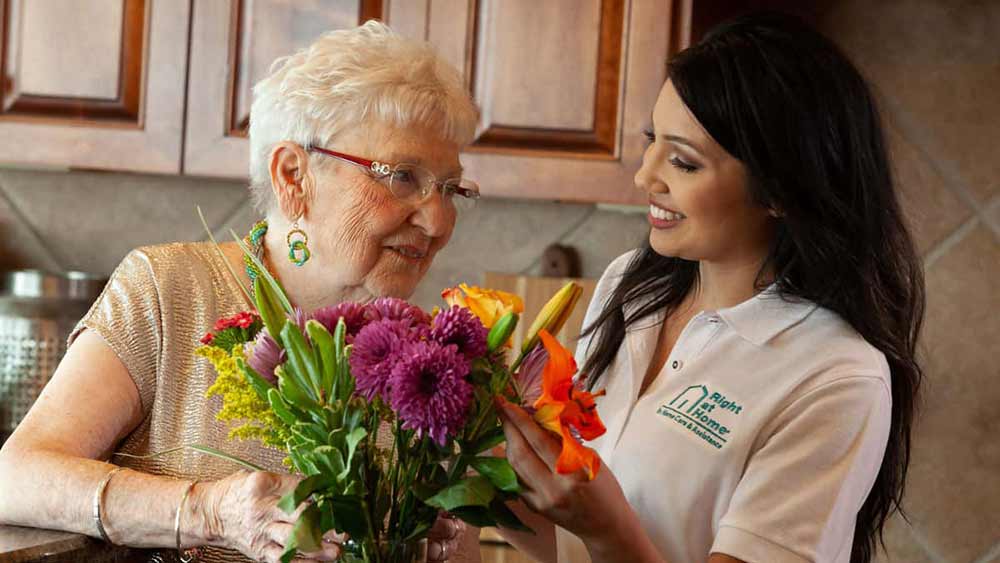

Coping With a Life-Changing Diagnosis
An older adult notices symptoms that suggest a health problem. Their doctor performs an examination and some tests, and arrives at a diagnosis. It might be cancer or another life-limiting illness. It might be a health condition that will surely change the patient’s life, such as dementia, diabetes, heart disease, Parkinson’s disease or a progressive vision loss.
What’s next? Experts say the steps the patient and family take now can affect their well-being as they move forward.
Emotional tasks
After learning that they have a serious illness, a patient often experiences stages of grief, including shock, denial and anger. They might feel guilt, wondering, “If I had taken more care with my diet, would I still have diabetes?” or “I smoked in college—is that why I have lung disease?” These emotions can lead to depression, making it even harder to manage their health condition.
Yet for the patient, their spouse and other family members, receiving a diagnosis also can bring a sense of relief and reduce anxiety, especially if the patient has been living with worrying symptoms for some time. “We were all worried about Mom’s behavior—but now we understand it was caused by Alzheimer’s disease,” family might say.
Here are some first steps in facing the emotional challenges of a diagnosis:
- Talk to family and friends. It is the patient’s right to decide who should know about their illness, but experts say being candid promotes support and understanding. Keeping the diagnosis secret can be a stressful burden for both the patient and family caregivers.
- Consult a counselor. A qualified mental health professional can provide a safe setting in which the patient, family caregivers or both can talk about their concerns, learn to cope with the emotional challenges they’re experiencing, and feel more in control of their situation.
- Join a support group. Talking to others with the same health challenges can be a tremendous comfort. The other group members have “been there,” so they can help the patient navigate the early days of the diagnosis. There are also condition-specific support groups for family caregivers.
Practical matters
Experts report that while some patients initially feel helpless and resigned to their fate, it’s much better to confront the diagnosis head on and focus on a plan of action. The goal is to move from “Why me?” to “What can I do?” Here are practical tasks to help you or a family member take charge:
- Learn all you can about your condition. Knowledge is power! Ask your doctor for reliable sources of information. Avoid random internet searching that could leave you overwhelmed with information—including misinformation.
- Discuss your prognosis and care plan with your health care team. Learn what treatment is likely to be recommended, and what you can do to best take care of yourself. Put a plan into place for managing your care, and follow recommended lifestyle choices, such as nutrition, exercise, adequate sleep and staying socially engaged.
- Get organized. Make a financial plan and put directives into place for financial and health care matters. Create a living will, and powers of attorney for both health care and finances. Review your insurance coverage and learn about resources that could help pay for care.
- Bring in experts. Financial planners, elder law attorneys and aging life care professionals (geriatric care managers) can help you create your plan and fine-tune it as the situation changes. Create a support network of family, friends and professionals who will be able to step in as more help is needed.
- Support family caregivers, too. Adjusting to the new role of caring for an ill spouse or parent can be stressful. It can lead to depression and health problems. Have a family meeting to create a plan for sharing care tasks.
Assistance at home
Early on, consider whether the patient’s home will continue to meet their needs as those needs change. Evaluate the safety and accessibility of the home. What modifications could help? While it is sometimes best to move to a skilled nursing facility or other supportive living environment, most patients prefer to receive care in their own homes. The “house call” has been making a comeback, most notably among older patients, and many in-home care agencies provide skilled nursing services and referrals for medical equipment.
Nonmedical in-home caregivers assist with personal care, such as bathing and dressing. They can grocery shop and prepare nutritious meals. They provide transportation, help coordinate doctor appointments, and provide health care reminders.
Professional in-home care also supports the well-being of family, allowing them to spend more time focusing on their relationship and things that are meaningful in life, whether that is spending the last days with a loved one who has a life-limiting illness, or rearranging their lives to accommodate the changes in their loved one’s condition.







